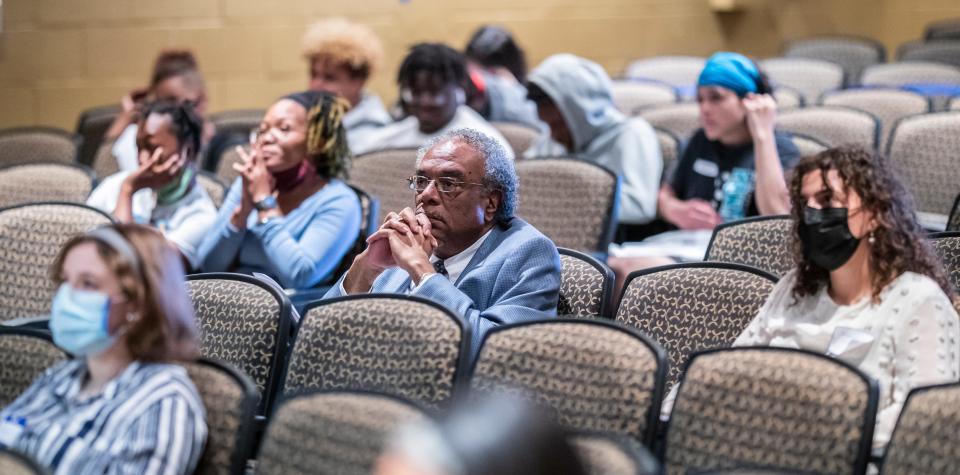Panama City reviews, accepts forensic audit results in wake of fraud by former employee
PANAMA CITY − After multiple scams by a former employee, local officials agree the city needs to make some changes.
Panama City commissioners on Tuesday reviewed and voted to accept the results and recommended actions of a forensic audit done by Warren Averett, an accounting firm based in Panama City. The audit's goal was to help prevent the city's fiscal and operation systems from being manipulated by employees, as well as uncover any illegitimate spending or stolen funds.
The audit was sparked by the October arrest of Michael Johnson, the city's former community redevelopment director, who was accused of embezzling money from the Friends of After School Assistance Program, a nonprofit organization that supports Panama City's After School Assistance Program.
According to Tammy McGaughy, a partner for Warren Averett, the audit delved through about a decade of financial records for various city funds. She briefed commissioners on its highlights during the Tuesday meeting.

"Over the period of the 10 years that we looked at − from 2012 to 2022 − approximately $1 million was embezzled from the Friends of the After School Assistance Program," McGaughy said. "Of that amount, Michael Johnson submitted $728,000 of city expenses for the ASAP program for grant reimbursements in the name of the (nonprofit).
"Johnson received those reimbursements, but did not remit any reimbursements to the city, and most importantly, all of this was done without the city's knowledge."
Warren Averett selected: Panama City Commission OKs firm for forensic audit sparked by Michael Johnson's arrest
More on Michael Johnson: Panama City to accept properties, money seized from former employee who embezzled
Past reports state Johnson resigned from his position in October after City Manager Mark McQueen confronted him about sloppy management practices. These included a lack of policies, procedures and documentation, as well as noncompliance with federal regulations related to Johnson's local role with the U.S. Department of Housing and Urban Development's Community Development Block Grant Program − a program that provides governments with federal funding to develop housing for urban communities.
Johnson was arrested about two weeks later, after an account for the ASAP program was discovered at Hancock Whitney Bank that had only him on its signature card. He directed the program since 2012 and had sole access to its checkbook, which McGaughy said "afforded him the opportunity to conceal this fraud."
Statements from Hancock Bank show Johnson wrote himself checks, the first of which was written on Feb. 1, 2012, for $9,839. The largest check was written on Nov. 13, 2020, for more than $37,215.
In March, Johnson pleaded no contest to grand theft, money laundering and 19 counts of official misconduct. He was sentenced to eight years in prison. Johnson used the approximately $1 million he embezzled to purchase 11 properties. McGaughy said he then illegally used about $89,000 in CRA funds to repair four of those homes.
"Johnson, acting alone, purchased these properties with cash, but delayed the recording of the deed until after the rehab was complete," she said. "Standard program procedures were followed by city employees, and they were unaware of this scheme."
Along with unveiling Johnson's crimes, the audit provided Panama City with a few key recommendations to help prevent similar situations from occurring again. The most important of these, McGaughy said, is to implement partnership agreements with any nonprofit organization the city has partnerships with.
This would establish certain rights, including the right to appoint someone from the city to the nonprofit's board, which would give the city access to the group's financial reports.
McGaughy also recommended the city implement an exception-reporting system for checks that would look for abnormalities. This might include splitting up checks or the writing of multiple checks on the same day.
"We have spent months working with the city," McGaughy said. "It has been an emotional process pealing away the onions, to say the least. (We) do believe the city is in the right direction moving forward."
This article originally appeared on The News Herald: Panama City Commission reviews and accepts results of forensic audit

